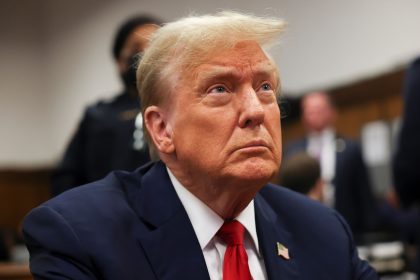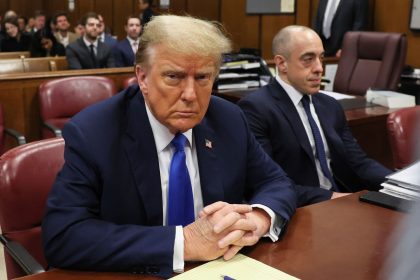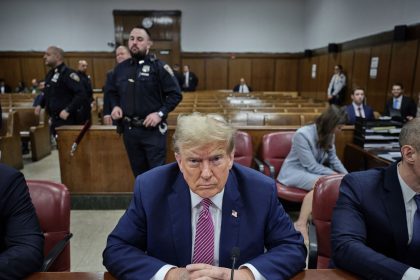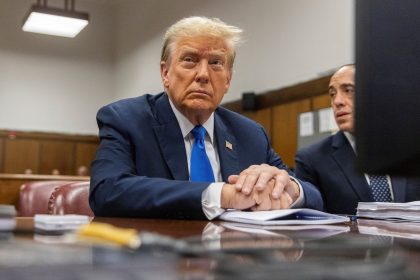Copyright Dispute on Your Hands? A New Venue for Complaints Debuts June 16
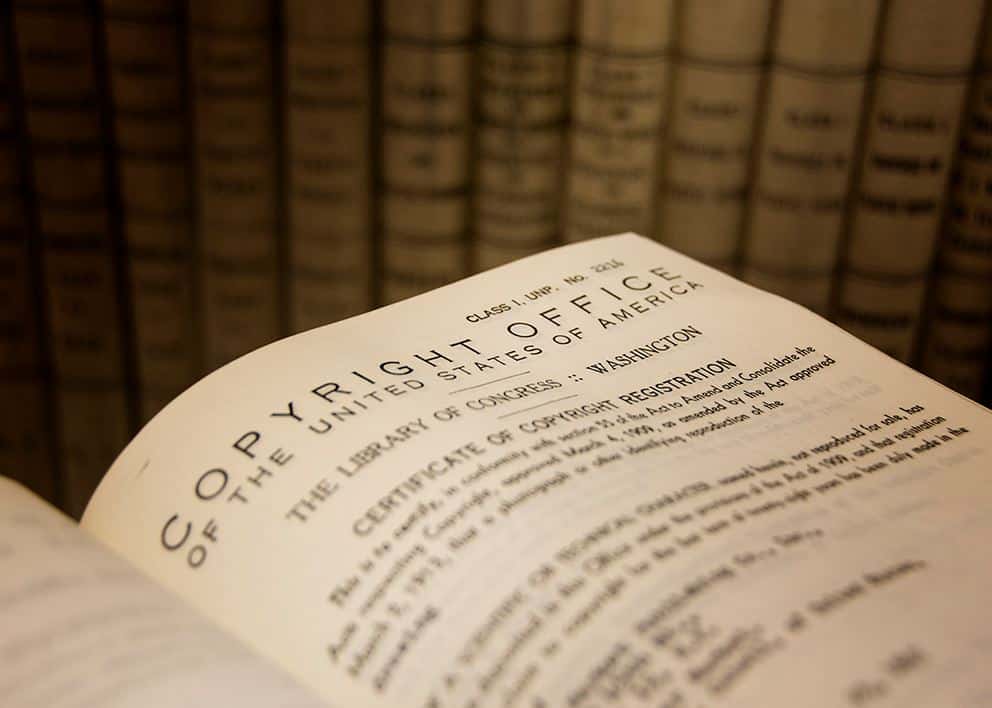
WASHINGTON — We’ve all heard of the big cases, the big money copyright infringement suits that drag on for years and ultimately end either in a multimillion-dollar payday or a whimper.
In December 2018, a federal judgment entered a nearly $5 million judgment against Robin Thicke and Pharrell Williams in favor of the family of the late Marvin Gaye.
In that case the claim was that Thicke and Williams’ hit song, “Blurred Lines,” borrowed a bit too heavily from Gaye’s 1977 hit “Got to Give it Up.”
In October 2020, Led Zeppelin finally saw its ownership of the rock classic “Stairway to Heaven” affirmed when the U.S. Supreme Court declined to review a case involving claims it had stolen the song’s iconic opening riff from a song by a lesser known U.S. band called Spirit.
This after Zeppelin’s Robert Plant and Jimmy Page had won the lawsuit in 2016, and had an appellate court affirm the earlier judge.
As in the case of “Blurred Lines,” millions of dollars were potentially at stake. By some estimates, “Stairway” had earned nearly $3.5 million during the five-year period the claim was tried.
Truth be told, most copyright infringement cases aren’t for such high stakes. But until now, they’ve always had to be heard in federal court, where litigants need counsel and mere filing fees can stretch into the hundreds of dollars.
That changes Thursday, June 16, when the U.S. Copyright Office’s Copyright Claims Board will begin accepting claims.
The nation’s first ever copyright small claims forum, the board is envisioned as being an accessible and efficient option for resolving copyright disputes involving claims up to $30,000.
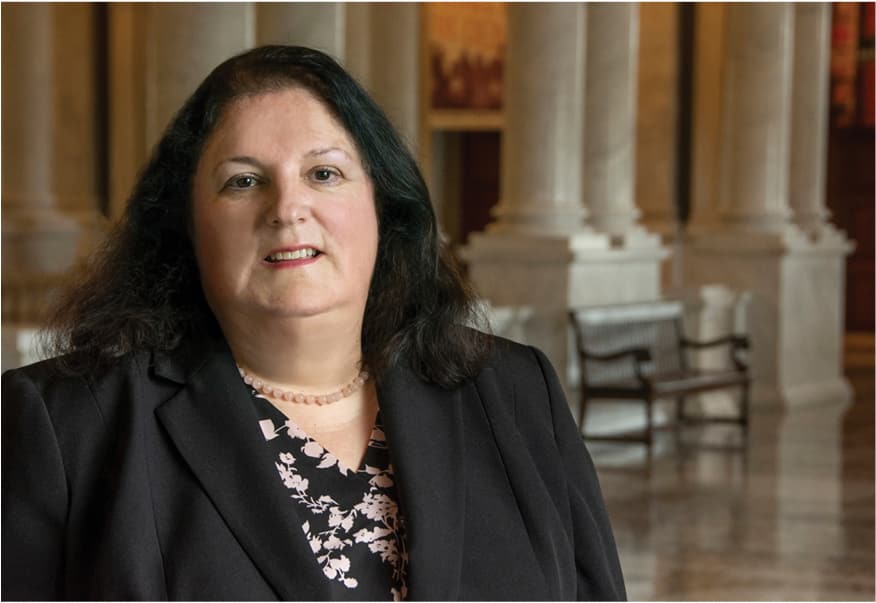
But as Monica McCabe, an intellectual property attorney and copyright claims officer who will sit on the tribunal explained to The Well News, the board may be new, but the idea behind it really isn’t.
“Artists and creators and others have been pushing for this for years because, as you know, it’s very expensive to go to federal court and it takes a lot of time,” she said. “The difficulty was in bringing it to fruition.
“The law establishing the board was proposed in 2006, and it has gone through several interactions over the number of years that have gone by since then,” she explained. “In the meantime, the Copyright Office itself did a major report exploring this whole idea of having such a tribunal.”
Finally, the bill — the Copyright Alternative in Small-Claims Enforcement Act or CASE Act — passed as part of the COVID-19 relief package.
“And we’ve been working for the last year or so to get it all prepared,” said McCabe, who was previously chair of the intellectual property department at the Phillips Nizer law firm.
Intellectual Property
Before going further into the nuts and bolts of how the new board will work, it might be helpful to draw some distinctions between various kinds of intellectual property and whether or not they’ll fall under the tribunal’s jurisdiction.
“Intellectual property has three branches and they’re each very different from the other,” said Brad Newberg, who was a partner with the McGuireWoods law firm before joining the Copyright Office as a claims officer.
Like McCabe, Newberg will also sit on the newly formed tribunal. The third member of the team is former Copyright Office General Counsel David Carson.
“Intellectual property has three branches, essentially,” he said. “There are patents, which are for inventions; there are trademarks, for protecting brands; and then there are copyrights, for protecting creative expression.
“Copyright does not protect ideas. It does not protect facts, although if you write a biography of someone or a nonfiction novel, it’s still protectable. What it is is very specific to any sort of creative expression,” Newberg said. “For instance, it could pertain to a painting or a photograph or a novel or to architecture or choreography and so forth.”
“To carry on with what Brad was just saying, I noticed on this Zoom call that there’s a lamp right behind you,” McCabe said. “If you came up with a new idea for the utility of how a lamp works, that would be a patent because it’s an invention, right?
“But if you put this really fanciful monkey on it, one that was very highly designed, you would be able to get a copyright on the monkey but not on the lamp itself,” she said.
Fair and Streamlined
Both McCabe and Newberg believe the new tribunal will be a help to both sides of a copyright dispute by being a more efficient and less expensive way to get disputes resolved.
“I see the formation of this office as a win for any creative artist who has a claim under $30,000, but at the same time, I think it’s really going to help businesses who spend a lot of money defending claims,” McCabe said.
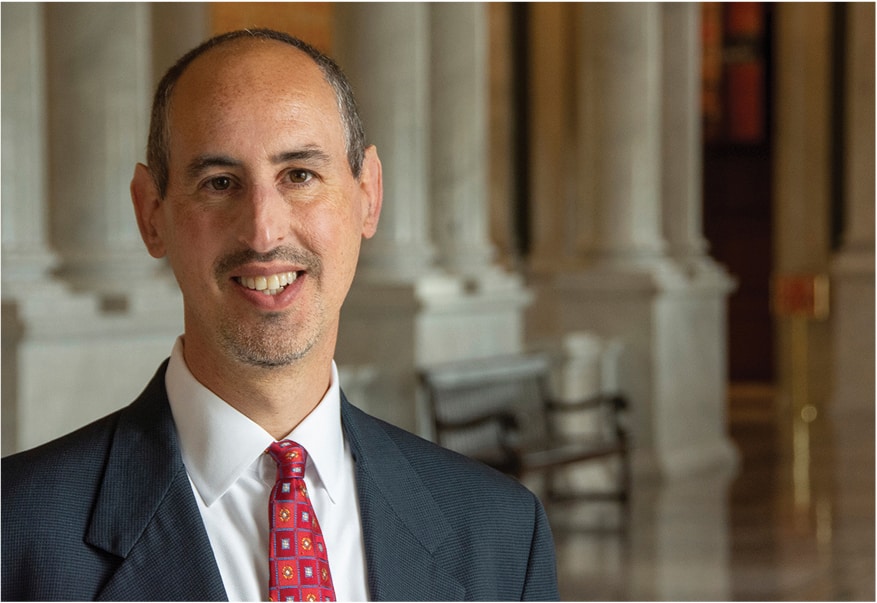
“I mean, I just read somewhere that the top IP lawyers are charging $2,000 an hour, which even shocked me and I came from a large firm,” she said.
“Federal court is quite expensive,” Newberg agreed. “And I think as a result, previously you had copyright owners who felt priced out of enforcing their rights, and you also had people who felt compelled to settle because the cost of a case had grown so high.
“Our goal is to be a fair but streamlined and cost-effective [way for] people to dispute claims,” he said.
The $30,000 cap on cases heard by the tribunal was set by statute by Congress. While it might seem low compared with the headline-grabbing judgments in something like the “Blurred Lines” case, many if not most copyright disputes will fit comfortably under that cap.
“For instance, let’s take the case of a photographer,” McCabe said. “They may only get a couple of hundred or $1,000 per photo. So if someone is ripping them off, using several of their photos without compensation, that’s a lot of money to them — even if it doesn’t add up to millions of dollars — because that’s how they make their income.
“And there are a lot of songwriters and other people for whom $30,000 would be a big boon to them. They may not make that much money in a whole year from their artistic endeavors,” she said.
“We should be clear though that just because you win a suit at the Copyright Claims Board doesn’t mean you’re going to get $30,000,” Newberg said. “That’s the maximum, but there’s a range that we are going to be considering, depending on the facts and merits of the case.”
Newberg also stressed that in no way were any of their comments meant to be viewed as a criticism of the federal court system.
“The federal court system works pretty well for the super-complex copyright cases, the cases where it’s worth investing in high-priced lawyers and vendors and experts and engaging in tremendous amounts of discovery.
“Where the federal courts weren’t working well for claimants and respondents was with the smaller suits where the costs of litigating were way outside the value of the case. That’s the gap we’re trying to fill.”
Do it Yourself and No Need to Travel
In fact, the Copyright Claims Board was largely designed to allow claimants to do most of the filing and case management they need themselves.
“There’s an online filing and docket management system that Brad has worked on really, really a lot, where you have a form that you fill out with step-by-step instructions, and then we also have a whole website with even more information. And in addition to all that, on opening day, we’ll be releasing a good part of our handbook,” McCabe said.
“The handbook itself will be a step-by-step guide on how to file a claim, how to respond to a claim, how to serve the other side, and also, you know, what steps you might take to address what we call ‘smaller’ claims, which are claims under $5,000,” she said.
“In addition to the information we’re providing the public, we’ve also developed a far more streamlined process than you’d find in a court case to save people time and effort,” Newberg said.
“So for example, once you get past that response stage, there’ll be a conference to go through the case and explain some procedures and such to the parties,” he said. “And then discovery is much more limited than federal court. For example, we will not have any depositions. And you will not need to travel for any conferences or hearings.
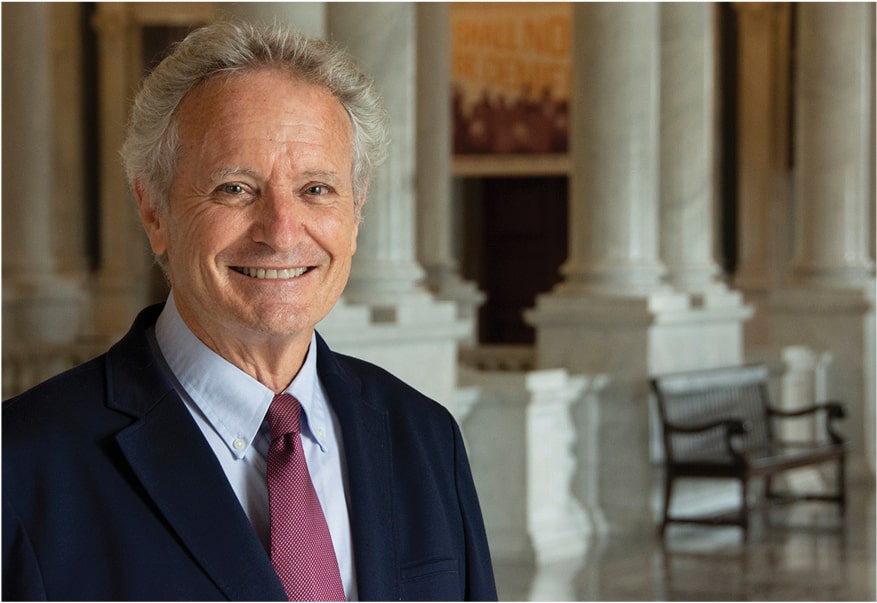
“There will be standard interrogatory, or questions for information, and document requests that each side needs to answer or produce documents for. … So they don’t have to come up with their own requests and their own responses,” Newberg continued. “Then, once that discovery period is done, the parties will submit a statement along with any witness statements and evidence for us to consider and we can just decide on the papers or hold the hearing. That’s the extent of the active phase of a Copyright Claims Board proceeding.”
“As Brad alluded to, they’re all virtual hearings. So no one is going to travel anywhere. It’s all going to be on Zoom,” McCabe said.
If a party is unhappy with the outcome of their proceeding, they have three options, under the Case Act.
They can go back to the Copyright Claims Board and request a reconsideration of the case due to some error of law or fact that the board has made; they can ask for a review of the case by the registrar of copyright, who can overturn a board decision in certain, limited cases; or they can go to federal court to appeal the ruling.
“But there are even more limited reasons a federal court can overturn a board ruling than in the case of the registrar,” McCabe said. “For instance, if somebody can show there was fraud or corruption in the making of our decision. It would have to be something fairly drastic.”
At this point, one might be wondering how the three members of the Copyright Claims Board came to their positions. The truth is, they said, they filed applications just as you would for any other kind of government job.
“Then we went through a very complicated interview process,” McCabe said.
Once they were hired, the three members began assembling a Copyright Claims Board team that includes three staff attorneys, a paralegal, a staff specialist, “and then we’ve been getting help from people like Nora Scheland, who’s the public affairs specialist for the Copyright Office, the general counsel’s office and so on.
So how busy do they expect to be once the office actually opens on the 16th?
“Well, that’s the $600,000 question,” McCabe said. “We’re all wondering about that.”
“It really is unclear at this point,” Newberg agreed. “There are a few thousand copyright cases bobbing around in federal courts around the country, and at this point, I don’t think anyone could tell you whether or not a bunch of those will move from federal court to us — and whether that will represent the bulk of the cases we see in the early going.
“It could be that we instead see mostly people who felt they couldn’t go to federal court in the past. Right now, that’s something on which we couldn’t even hazard a guess right now,” he said.
The aforementioned Nora Scheland has provided a number of helpful links for members of the public who might be interested in using the services of the Copyright Claims Board.
They are:
- Copyright Office main website: https://www.copyright.gov/
- Copyright Office engage page: https://www.copyright.gov/engage/ (great resource for anyone looking for help getting started with copyright in general)
- Copyright Claims Board website: https://ccb.gov/
- Copyright Claims Board Officer bios: https://ccb.gov/about/index.html#bios
- Contact form: https://www.copyright.gov/help/
In addition, members of the public may call the agency at (202) 707-3000 or 1 (877) 476-0778 (toll-free).
Dan can be reached at [email protected] and @DanMcCue

















